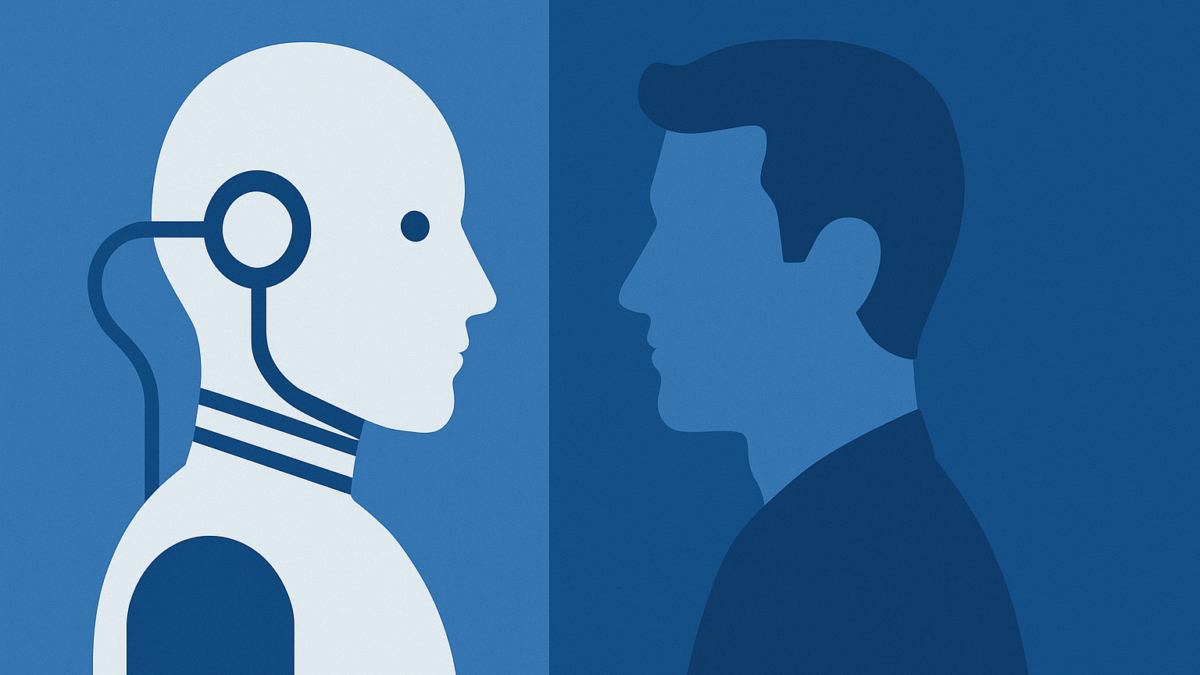AI vs Human Creativity: Where Should Marketers Draw the Line?
Table of Contents
Introduction
As artificial intelligence (AI) continues to shape industries, marketing is undergoing a transformative shift. From content creation to predictive analytics, AI offers tools that improve efficiency, precision, and scalability. But where does this leave human creativity? Can algorithms truly replace intuition, storytelling, and emotional resonance — the very essence of impactful marketing?
This blog explores the balance between AI and human creativity in modern marketing and asks the critical question: Where should marketers draw the line?
AI in Marketing: The Unstoppable Rise
AI is no longer a futuristic concept; it’s already embedded in marketing workflows. Tools like ChatGPT, Jasper AI, Grammarly, and Canva’s Magic Studio are redefining how marketers brainstorm, write, edit, and even design.
Key areas where AI excels:
- Data analysis and trend prediction: AI tools can analyze vast datasets to identify patterns and forecast trends far more accurately than a human analyst.
- Content generation at scale: AI can produce blog outlines, email drafts, social media posts, and ad copy in seconds.
- Customer segmentation and personalization: Machine learning algorithms help marketers tailor experiences based on behavioral data.
- Chatbots and customer support: AI-driven bots now handle everything from queries to lead qualification.
In essence, AI boosts productivity, reduces operational costs, and allows marketers to focus more on strategy than execution.
The Limitations of AI: Where Humans Still Lead
Despite its capabilities, AI has clear limitations, especially when it comes to emotional intelligence, cultural nuance, and originality.
Why human creativity still matters:
- Emotional storytelling: AI can mimic tone and structure, but it doesn’t understand why a story moves people. Human writers bring personal experience and empathy to the content.
- Brand voice & authenticity: Maintaining a consistent, genuine voice that resonates with audiences requires human oversight. AI often sounds formulaic or generic.
- Ethical judgment: Not all marketing decisions can be made using data. Humans consider context, values, and impact — something algorithms are not yet equipped for.
- Creative strategy: AI can support idea generation but cannot create a disruptive brand campaign like “Think Different” or “Just Do It.”
Ultimately, creativity isn’t just about creating—it’s about connecting. And that remains a fundamentally human strength.
Blending AI and Human Creativity: The Sweet Spot
The future of marketing isn’t about choosing between AI and human creativity — it’s about combining both.
Here’s how marketers can strike the right balance:
- Use AI as an Assistant, Not a Replacement: Leverage AI to handle repetitive tasks, generate first drafts, or offer ideas. Then refine and humanize the output with emotional and contextual depth.
- Enhance, Don’t Replace Human Insight: Use AI tools to support your creative process. For instance, content marketers can use AI for keyword research and blog structuring, while keeping the storytelling human-led.
- Prioritize Creative Strategy: AI cannot originate a marketing vision. Leave ideation, brand positioning, and campaign strategy to experienced marketers, supported by data insights from AI.
- Monitor for Bias and Errors: AI is trained on existing data, which may carry biases. Human oversight ensures content is fair, inclusive, and appropriate.
Case in Point: AI-Generated Campaigns vs Human-Led Creativity
You May Also Like: The Future of Pre-Employment Background Verification in the AI Era
Consider two types of campaigns:
- An AI-generated email that follows best practices and optimizes open rates.
- A human-led campaign that tells a customer success story, taps into current culture, and triggers emotional engagement.
Both have value — but the second creates brand loyalty, not just conversions. That’s the difference human creativity brings.
The Road Ahead: Human-AI Collaboration
As AI tools continue to evolve, the most successful marketing teams will be those that master collaborative intelligence — the synergy of machine efficiency and human imagination.
AI will keep marketers faster and more data-driven. But human creativity will always be the spark that makes content memorable, campaigns impactful, and brands meaningful.
Final Thoughts
The debate between AI vs human creativity isn’t about replacement — it’s about redefinition. Marketers need to embrace AI without abandoning the human touch that drives connection and trust.
The question isn’t who is better — it’s how they can work better together.
Call to Action
At iTMunch, we explore the future of marketing through the lens of AI, innovation, and human creativity. Subscribe to our newsletter and stay ahead of marketing trends that blend technology with human insight.





